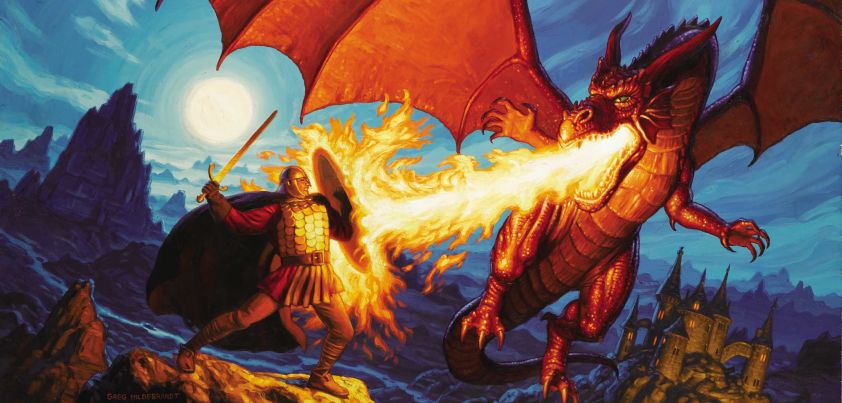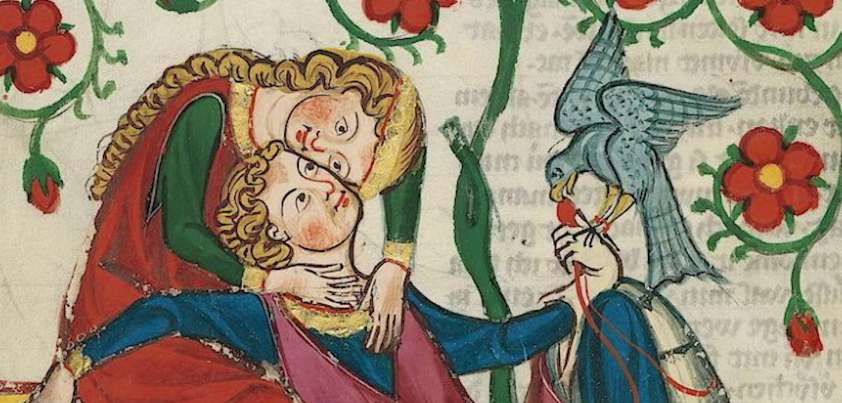 This story from Jane Yolen is about a baby ‘selchie’ (human/seal shapeshifter) that is washed up on a beach and raised by a childless fisherman and his wife. Their lives change fifteen years later when a huge storm destroys their hut and threatens to drown the fisherman at sea. The main theme of the story is selfishness. By ‘imprisoning’ the boy on land in the name of love, the fisherman’s wife prevents him from fulfilling his destiny. Other themes: the power of nature, freedom, the supernatural. The story’s message: true love involves letting go and empowering children to be themselves. More…
This story from Jane Yolen is about a baby ‘selchie’ (human/seal shapeshifter) that is washed up on a beach and raised by a childless fisherman and his wife. Their lives change fifteen years later when a huge storm destroys their hut and threatens to drown the fisherman at sea. The main theme of the story is selfishness. By ‘imprisoning’ the boy on land in the name of love, the fisherman’s wife prevents him from fulfilling his destiny. Other themes: the power of nature, freedom, the supernatural. The story’s message: true love involves letting go and empowering children to be themselves. More…
The Fifty-first Dragon
 This major themes of this humorous take on the dragon-slayer genre by Heywood Broun are courage and belief in one’s ability. When Gawaine fails almost everything else at “Knight School”, the headmaster decides to make him a dragon slayer. Unfortunately, Gawaine lacks self-confidence and insists on receiving a magical invisibility spell before starting the job. Some reviewers see the story as an allegory of America’s elite College Preparatory Schools. Written in 1919, others see it as a satire of the propaganda slogans used to lure naïve young men to the trenches during World War 1. Other themes: paternalism, deception, vanity. More…
This major themes of this humorous take on the dragon-slayer genre by Heywood Broun are courage and belief in one’s ability. When Gawaine fails almost everything else at “Knight School”, the headmaster decides to make him a dragon slayer. Unfortunately, Gawaine lacks self-confidence and insists on receiving a magical invisibility spell before starting the job. Some reviewers see the story as an allegory of America’s elite College Preparatory Schools. Written in 1919, others see it as a satire of the propaganda slogans used to lure naïve young men to the trenches during World War 1. Other themes: paternalism, deception, vanity. More…
Marigolds
 In Eugenia Collier’s Marigolds the protagonist comes of age (or in her words loses her innocence) when caught in a senseless act of destruction. Angry about her father’s shame over not being able to find work, she lashes out at the garden of a neighbor who is trying to bring beauty and happiness into her life by growing marigolds. Ironically, the neighbor and her disabled son are even more destitute than the protagonist’s family. Themes: childhood memories, poverty, shame, envy, impulsiveness, empathy, guilt and possibly racism (the resentful references to “white folks” and comments about Miss Lottie’s “Indian-like” features). More…
In Eugenia Collier’s Marigolds the protagonist comes of age (or in her words loses her innocence) when caught in a senseless act of destruction. Angry about her father’s shame over not being able to find work, she lashes out at the garden of a neighbor who is trying to bring beauty and happiness into her life by growing marigolds. Ironically, the neighbor and her disabled son are even more destitute than the protagonist’s family. Themes: childhood memories, poverty, shame, envy, impulsiveness, empathy, guilt and possibly racism (the resentful references to “white folks” and comments about Miss Lottie’s “Indian-like” features). More…
The Book of Sand
 Some time ago we featured Jorge Borges’s Library of Babel. This contains an infinite number of books that nobody can understand. In The Book of Sand, a book lover also obtains a book that can’t be understood. It is in a strange language and has an endless number of randomly changing pages. Is there a connection between the two stories? Could this be the “perfect compendium” that will unlock the Library’s secrets? Or is it one of the magical books from the Library’s Crimson Hexagon? Either way, the book lover is so frightened that he hides the book away forever. More…
Some time ago we featured Jorge Borges’s Library of Babel. This contains an infinite number of books that nobody can understand. In The Book of Sand, a book lover also obtains a book that can’t be understood. It is in a strange language and has an endless number of randomly changing pages. Is there a connection between the two stories? Could this be the “perfect compendium” that will unlock the Library’s secrets? Or is it one of the magical books from the Library’s Crimson Hexagon? Either way, the book lover is so frightened that he hides the book away forever. More…
Federigo’s Falcon
 Officials issued public pleas and advised residents on measures that would minimise risk of contagion, such as social distancing and increased personal hygiene. Sound familiar? This comes from the introduction to The Decameron, a 1353 collection of tales told by a fictitious group hiding from the plague (smallpox). Although most of the stories were borrowed from early Eastern and European sources, Italian author Giovanni Boccaccio cleverly re-wrote (and in some cases reinvented) them into a fascinating account of life at the time. In this story, a poor noble mistakenly sacrifices his prized hunting bird to impress the woman he loves. More…
Officials issued public pleas and advised residents on measures that would minimise risk of contagion, such as social distancing and increased personal hygiene. Sound familiar? This comes from the introduction to The Decameron, a 1353 collection of tales told by a fictitious group hiding from the plague (smallpox). Although most of the stories were borrowed from early Eastern and European sources, Italian author Giovanni Boccaccio cleverly re-wrote (and in some cases reinvented) them into a fascinating account of life at the time. In this story, a poor noble mistakenly sacrifices his prized hunting bird to impress the woman he loves. More…